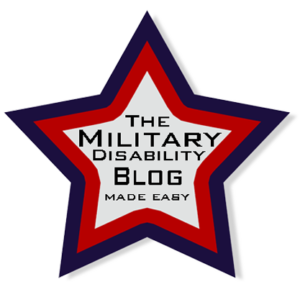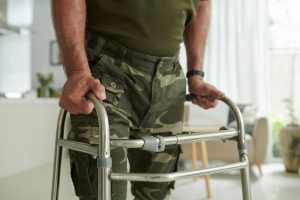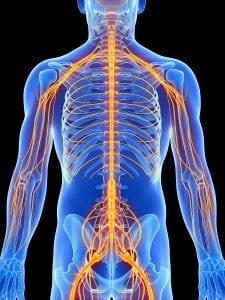What Evidence is Most Important? — The Hierarchy of Evidence for Supporting Your Ratings
- Published:
- Last Updated: September 29, 2022

While it is the VA’s job to decide the ratings for your conditions, it is YOUR job to provide the evidence necessary to support the correct ratings.
Evidence is essential to your military disability.
No evidence = no benefits. No question.
But not all evidence is created equal. The VA will give more “probative value” to some evidence over others. The basic idea is that if the evidence comes from a more official source or from someone with more authority to speak on the topic, then that evidence is more likely to be true and accurate. Thus, evidence from a neurosurgeon will have more probative value than from a chiropractor, an official exposure document will have more probative value than a Buddy Letter, etc.
So when it comes to supporting your ratings, what evidence is the best evidence?
Here’s a list of evidence ranked from the most important to the least important for supporting your ratings.
As you go down this list, if your ratings are firmly established with the evidence you have from #1 through #4 (the essentials), you don’t really need to proceed further. If it isn’t, though, or it could be stronger, then add something from the next number, then the next, etc., until your evidence for your ratings is as solid as you can make it.
Before compiling your evidence, make sure you find your condition on our site so you know what evidence is necessary to properly rate your condition.
1. Official diagnostic medical records.
For each and every condition on your claim, there needs to be a clear diagnosis. No diagnosis means that there isn’t a condition to rate. If you claim ischemic heart disease, but only heart murmurs are officially diagnosed, your claim will be denied. So the first thing your evidence must do is show proof that the condition exists and has been diagnosed officially.
2. Current medical evidence from specialists.
The VA rates all conditions on their severity at the time you submit the claim, so there must be sufficient current legitimate medical evidence that supports your rating.
Evidence from specialists will always have the highest probative value, so it’s important before submitting your claim to ensure that you have current evidence from a specialist for your condition (cardiologist for heart disease, psychologist for mental disorders, etc.).
If this means making a new appointment to have your conditions re-examined, do it. The specialist can be a civilian physician or a VA physician. It doesn’t matter. However, the VA’s C&P Exam does NOT count as evidence under this section (see number 3 below), so do not think that a C&P exam is all you need here. It’s not.
The VA has DBQs that you can have your specialist fill out to help support your claim. DBQs are helpful but not essential. As long as you know what evidence (measurements, tests, etc.) is needed to rate your condition, you can have your specialist simply record that information in your medical records. A DBQ is not needed as long as the correct information needed to rate your conditions is recorded.
A Quick Note: Not all conditions need to be treated by a specialist, so if your general practitioner (GP) has been the one to manage your condition, then your GP is considered the one with the most knowledge of your condition, and so qualifies as the best one to give evidence here.
3. C&P Exam(s).
After you submit your claim, the VA will schedule you to see one of their VA physicians for a C&P Exam. You may only have a single C&P Exam by a general practitioner, or you could have multiple with various specialists. The VA will decide based on the amount of evidence you have and the complexity of your conditions.
At the C&P Exam, the VA physician will review your conditions and perform tests. It is essential that you make sure all the correct tests are performed and necessary evidence recorded to rate your conditions during this exam. Do not assume the VA physician knows what information is needed to rate your conditions. The majority of the time, they don’t.
Also do not suppose that the information gathered during the C&P exam will be enough so you don’t have to get this information from specialists in #2 above. WRONG. The evidence from #2 is vital, and here’s why:
The VA will put a lot of probative value on the C&P exam since its entire purpose is to evaluate conditions for VA Disability. However, in order to ensure that you get the correct rating, it is more important for you to focus on outside evidence from specialists for two reasons.
First, if the evidence gathered during the C&P exam agrees with the evidence from your specialists, your case will be solid. Second, if the C&P exam evidence doesn’t agree, you’ll have submitted strong evidence to throw doubt on the C&P exam. If there is enough of this strong evidence, the VA could still decide in your favor, despite the C&P exam.
So even though the VA does give significant weight to the C&P exam and it is important for you to make sure the correct info is recorded then, your outside medical evidence is even more important.
4. All other recent medical evidence.
Since the VA rates conditions on their current severity, all of the medical evidence you have regarding your condition from the past 12 months is very important.
Many ratings look closely at the 12 months prior to submitting your claim, so don’t just submit the most current records from your specialist. Submit everything from lab tests, radiology, physical therapy, etc. Everything from the past 12 months that has anything to do with your condition can be valuable to your rating.
For example, migraine headaches are rated on how often they occur and their severity. On average, one prostrating migraine each month rates 30%, so in order to properly assign a 30% rating, the VA will need to see evidence of migraines occurring at least once each month on average for the past 12 months.
A note as we move on: We are now getting into things that don’t apply to every condition, so if your evidence is already solid by this point, you may not need to add anything further from this list. Regardless, additional supporting evidence never hurt a claim…
5. Medical evidence connecting the current condition to the original diagnosis.
As we discussed in our previous blog, The Hierarchy of Evidence for Proving Service-Connection, if your condition was diagnosed a while back, then it is vital to be able to show proof that your current condition is the same as the original condition for service-connection purposes. However, this evidence can also be valuable for rating purposes as it shows the development of the condition over time.
Since the VA only rates conditions on their current severity, this evidence won’t affect the ratings for the majority of conditions. But some ratings, especially for conditions like mental disorders, look at the entire condition and how it affects all aspects of your life over time, so this history can add helpful evidence in these cases.
Some ratings, like the ratings for mental disorders, look at how the condition affects your ability to do your job. For these ratings, it can be very helpful to get a letter from your boss that addresses how your condition affects your work performance.
7. Buddy/Family letters.
Like Commander/Employer letters, letters from friends and family that testify to how your condition affects your daily life can strengthen your claim for conditions, like mental disorders, that look at your daily functioning when determining a rating.
8. Personal Statements.
You are always welcome to write a personal statement, but this is always lowest in the hierarchy of evidence simply because if there is no other evidence to support the things stated in your personal statement, it will be ignored. There must be outside evidence to corroborate your statement in order for it to have any value.
Because of this, personal statements are not needed in the majority of claims. They really are only helpful in providing one more point of support, and so come in handy for conditions, like mental disorders, that are rated based on things that cannot be tested and officially proven. The idea is that if you, your boss, and your wife all testify of a symptom that affects your daily life, then it is more likely to be true than if it is only mentioned in one place.
As you compile your evidence, remember to focus on gathering evidence with the highest probative value, and your claim will be solid.
Recent Posts
TDRL vs. PDRL—Which is better for disability benefits?
Leukemias and Multiple Myelomas NOW on the Presumptive List
Two MORE Conditions added to the Burn Pit Presumptive List
The 2025 VA Disability Rates are here!
About Us










2 Comments
I disagree about the weight on a Veterans " Personal" statement. Especially a Combat Veteran. His word, unless "proven" false, is binding on ALL VA.
Yes and no. The lack of evidence in any other area except the personal statement can easily be considered "proof" that the statement is false, especially if there is nothing else that supports the assertion at all. Thus, personal statements are always strongest when other evidence also supports the claims. The reality is that while most veterans are honest and just trying to get their deserved benefits, some can be very dishonest. If the VA really had to grant claims just because the veteran says something in their statement, it would open the door to significant abuse of the system and tax payer money.